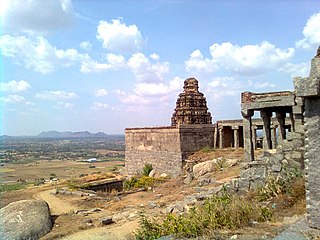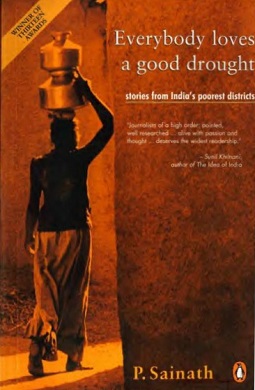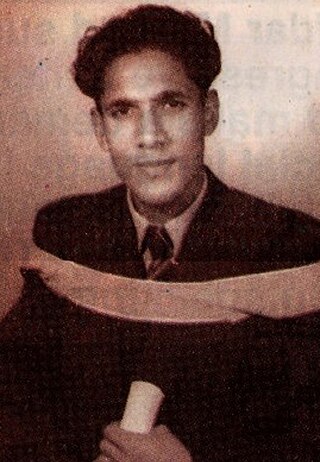
Murlidhar Devidas Amte, popularly known as Baba Amte, was an Indian social worker and social activist known particularly for his work for the rehabilitation and empowerment of people suffering from leprosy. He has received numerous awards and prizes including the Padma Vibhushan, the Dr. Ambedkar International Award, the Gandhi Peace Prize, the Ramon Magsaysay Award, the Templeton Prize and the Jamnalal Bajaj Award. He is also known as the modern Gandhi of India.

Tirunellai Narayana Iyer Seshan was an Indian civil servant and bureaucrat who served with the Indian Administrative Service. After serving in various positions in Madras and in various ministries of the Central Government, he served as the 18th Cabinet Secretary of India in 1989. He was appointed the 10th Chief Election Commissioner of India (1990–96) and became known for his electoral reforms. He won the Ramon Magsaysay Award for government service in 1996.

Palagummi Sainath is an Indian columnist and author of the acclaimed book Everybody Loves a Good Drought. He has extensively written on rural India, his notable interests are poverty, structural inequities, caste discrimination and farmers protests.

Krishnagiri district is one of the 38 districts of the state of Tamil Nadu, in India. This district is carved out from Dharmapuri District by 2004. The municipal town of Krishnagiri is the district headquarters. In Tamil Nadu, e-Governance was first introduced at Krishnagiri district under the National e-Governance Project (NEGP) in revenue and social welfare departments on a pilot basis. The district is one of the largest producers of mangoes in India. As of 2011, the district had a population of 1,879,809 with a sex-ratio of 958 females for every 1,000 males. Hosur is the most populous town in the district.

Manibhai Bhimbhai Desai was an Indian social activist, associate of Mahatma Gandhi, and a pioneer of rural development.
Banoo Jehangir Coyaji was an Indian physician and activist in family planning and population control. She was director of King Edward Memorial Hospital in Pune, and started programmes of community health workers in rural areas of Maharashtra, the third largest state in India. She became an advisor to the union government and an internationally recognised expert.
Tahrunessa Ahmed Abdullah is a Bangladeshi writer and activist. She is notable for her researches and contribution to an uplift in the lives of women in rural Bangladesh through her various levels of involvement with Bangladesh Academy for Rural Development. In 1978, she became the first Bangladeshi to receive the Ramon Magsaysay Award in the community leadership category.

Harish Hande is an Indian social entrepreneur, who co-founded SELCO India in 1995. He was awarded with the Ramon Magsaysay Award for 2011 for "his pragmatic efforts to put solar power technology in the hands of the poor, through his social enterprise SELCO India".

Everybody Loves a Good Drought is a book, by P. Sainath, about his research findings of poverty in the rural districts of India. The book won him the Ramon Magsaysay Award.

Deep Joshi is an Indian social worker and NGO activist and a recipient of the Magsaysay award in 2009. He is recognised for his leadership in bringing professionalism to the NGO movement in India. He co-founded a non-profit organisation, Professional Assistance for Development Action (PRADAN), of which he was the Executive Director till 2007. He was awarded the 2009 Magsaysay award for Community Leadership for his work for "development of rural communities". He is also a recipient of the civilian honour of Padma Shri.

Shoaib Sultan Khan NI is one of the pioneers of rural development programmes in Pakistan. As a CSP Officer, he worked with the Government of Pakistan for 25 years, later on he served Geneva based Aga Khan Foundation for 12 years, then UNICEF and UNDP for 14 years. Since his retirement, he has been involved with the Rural Support Programmes (RSPs) of Pakistan full-time, on voluntary basis. Today, the Rural Support Programmes have helped form 297,000 community organisations in 110 districts including two Federally Administered Tribal Areas of Pakistan.

Sri Satyatma Tirtha, is an Indian Hindu philosopher, guru, scholar, spiritual leader, saint and the present pontiff of Uttaradi Math. He is the 42nd pontiff of Uttaradi Math since Madhvacharya, the chief proponent and the one who rejuvenated the Dvaita philosophy (Tattvavada). Satyatma Tirtha founded Vishwa Madhwa Maha Parishat, a non-profit, religious and social organization in 1998.

Rajnikant Shankarrao Arole was born in Supa in the Ahmednagar district of Maharashtra, India on 10 July 1934, the second child of Shankar and Leelawati Salve Arole. His parents were both schoolteachers and his father became Inspector of Schools. The Aroles raised their three sons and four daughters in the faith of the Church of England, inculcating in them Christian ethical and spiritual values that have guided Rajnikant through a lifetime of public service.

Goonj is a non-governmental organisation headquartered in New Delhi, India, that undertakes disaster relief, humanitarian aid and community development in parts of 23 states across India. Goonj focuses on clothing as a basic but unaddressed need.

Anshu Gupta is an Indian entrepreneur. He founded the non-governmental organization Goonj. Goonj works on bridging urban and rural inequality. It does this by channelizing the urban surplus to initiate rural upliftment, disaster relief, and rehabilitation. Through Goonj, Anshu is building a parallel trash-based economy by creating barter between rural communities and urban surplus material. Anshu has been recognized by the Ramon Magsaysay foundation for his "creative vision in transforming the culture of giving in India".
The Auroville Village Action Group (AVAG) is a non-governmental organization based in Irumbai which is situated close to Auroville in the Villupuram district, located in Tamil Nadu, India. It is committed to grass roots community building together with the local villages in the Villupuram district on different development areas, namely community development, economic development, capacity building, and psychosocial support. In all those four areas, the ultimate goal is to "realize the inherent capability of human beings for self-empowerment [and to] provide the proper resources to build a healthy life".
Kshama Metre, popularly known as Doctor Didi, is an Indian rural development leader, and a pediatrician, who has led the Chinmaya Organization for Rural Development (CORD) since the founding of its predecessor organization in 1985, and she leads the organization as its National Director. The organization serves the rural areas of India with its unique approach for sustainable and comprehensive community driven integrated development program, under the aegis of the Chinmaya Mission. While holding the directorship of CORD India, she also serves as an adviser to CORD USA, the US wing of the Organization. A recipient of several awards including the Guardian International Development Achievement Award of 2012, she was selected as the Woman of the Year by The Week magazine, in 1993. The Government of India awarded her the fourth highest civilian honor of the Padma Shri, in 2008, for her contributions to society.
Murali G is an Indian cinematographer who works mainly in Tamil cinema. An alumnus of the Film and Television Institute of India (FTII), Pune, he won the National Film Award for Best Non-Feature Film Cinematography in 2011.












